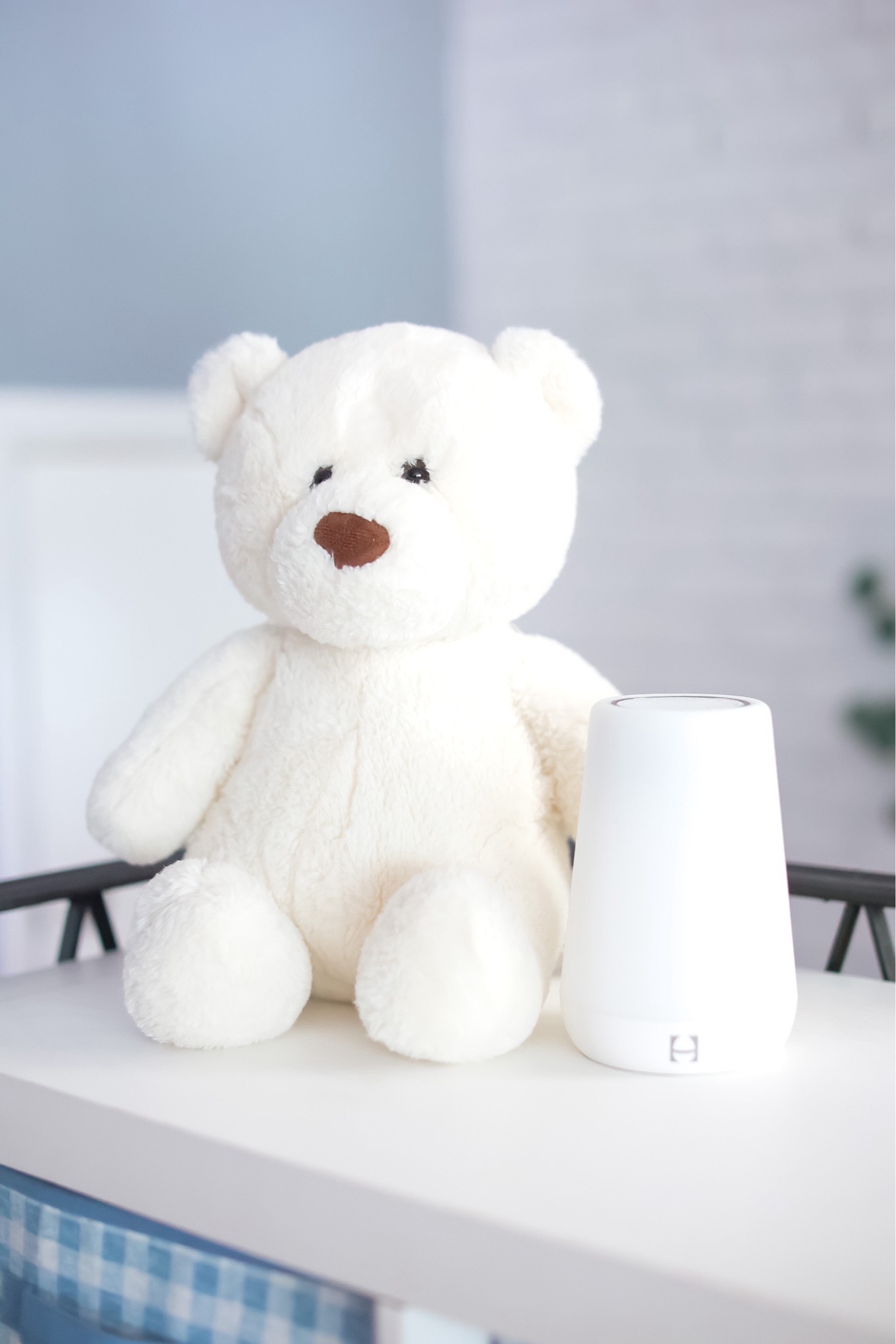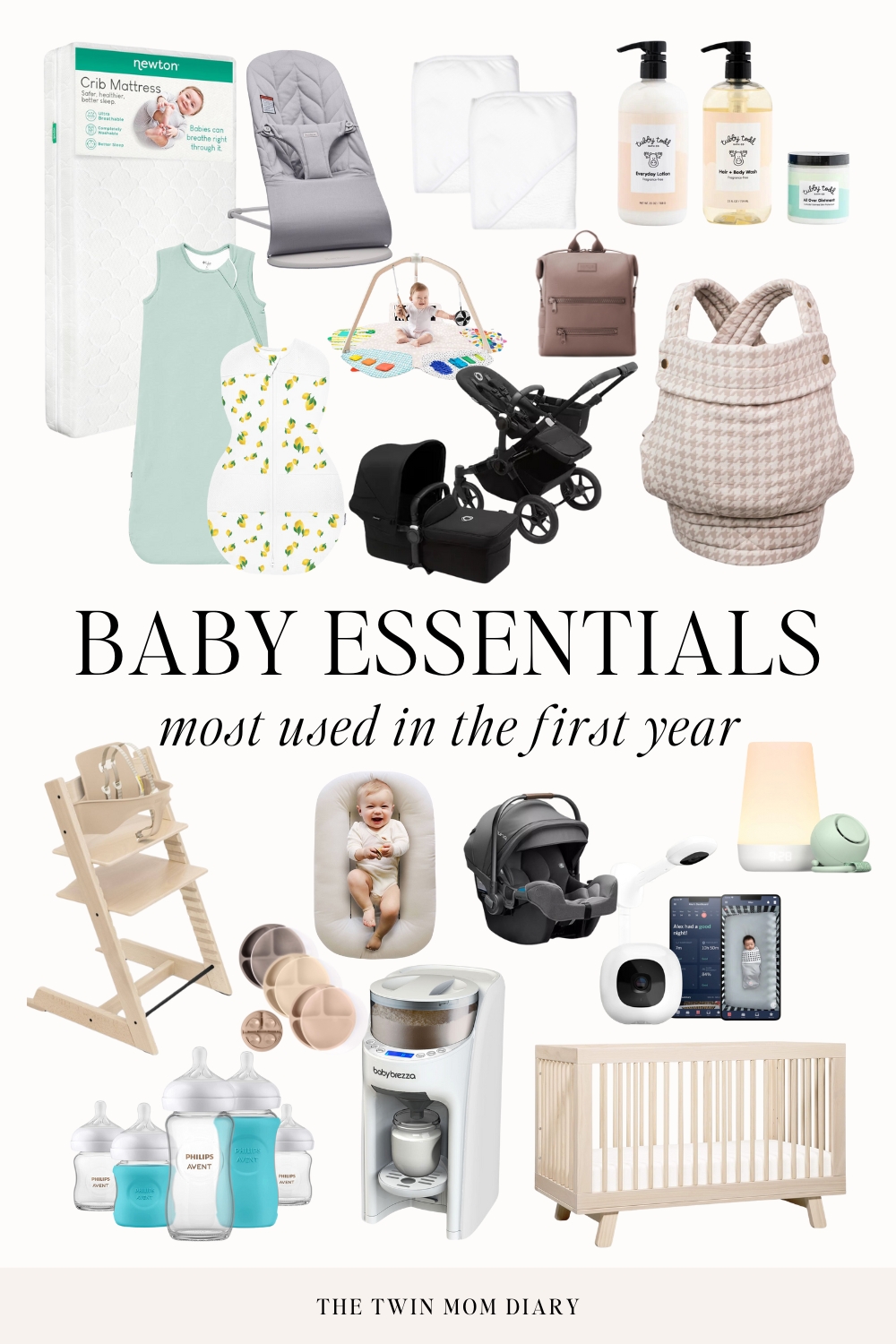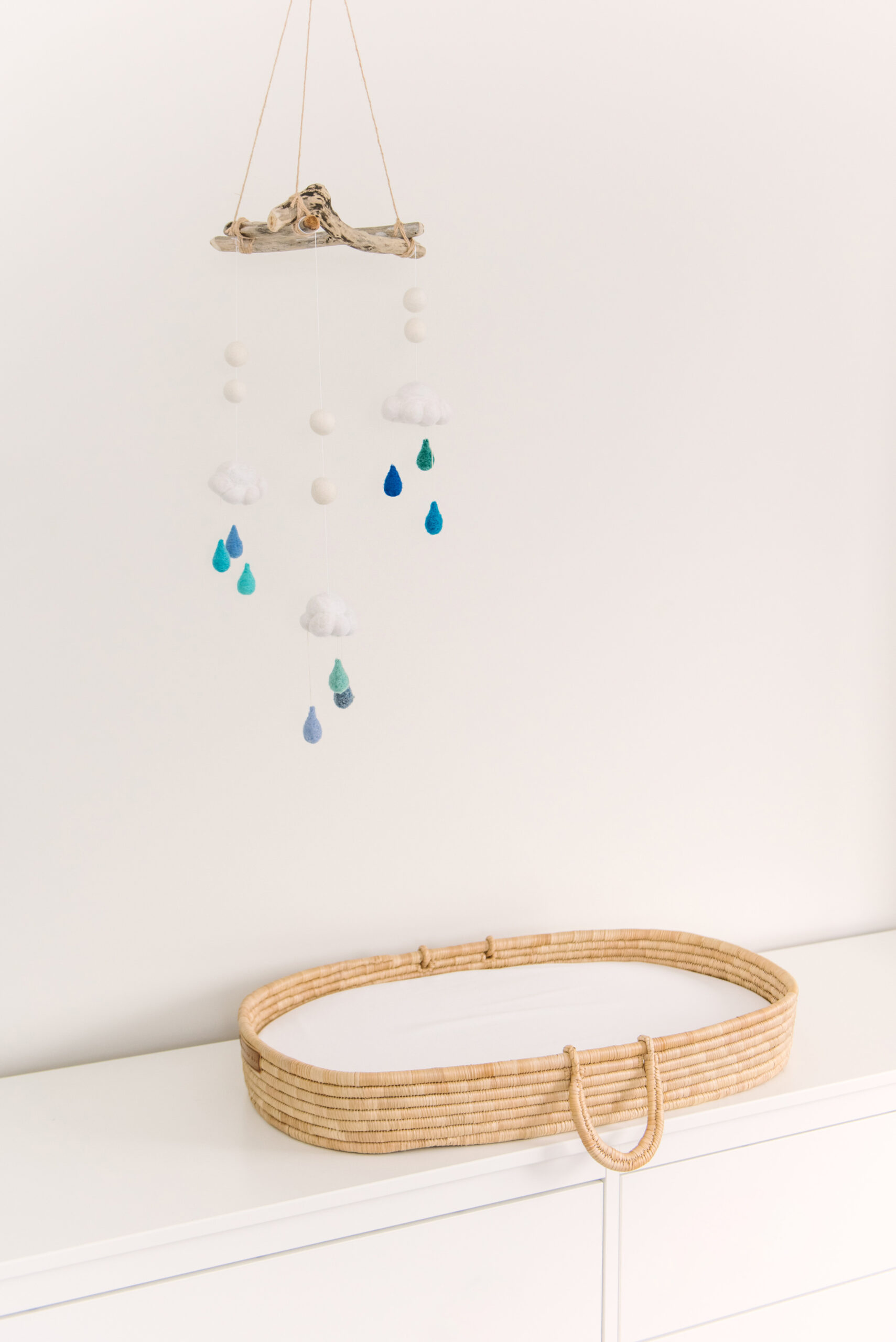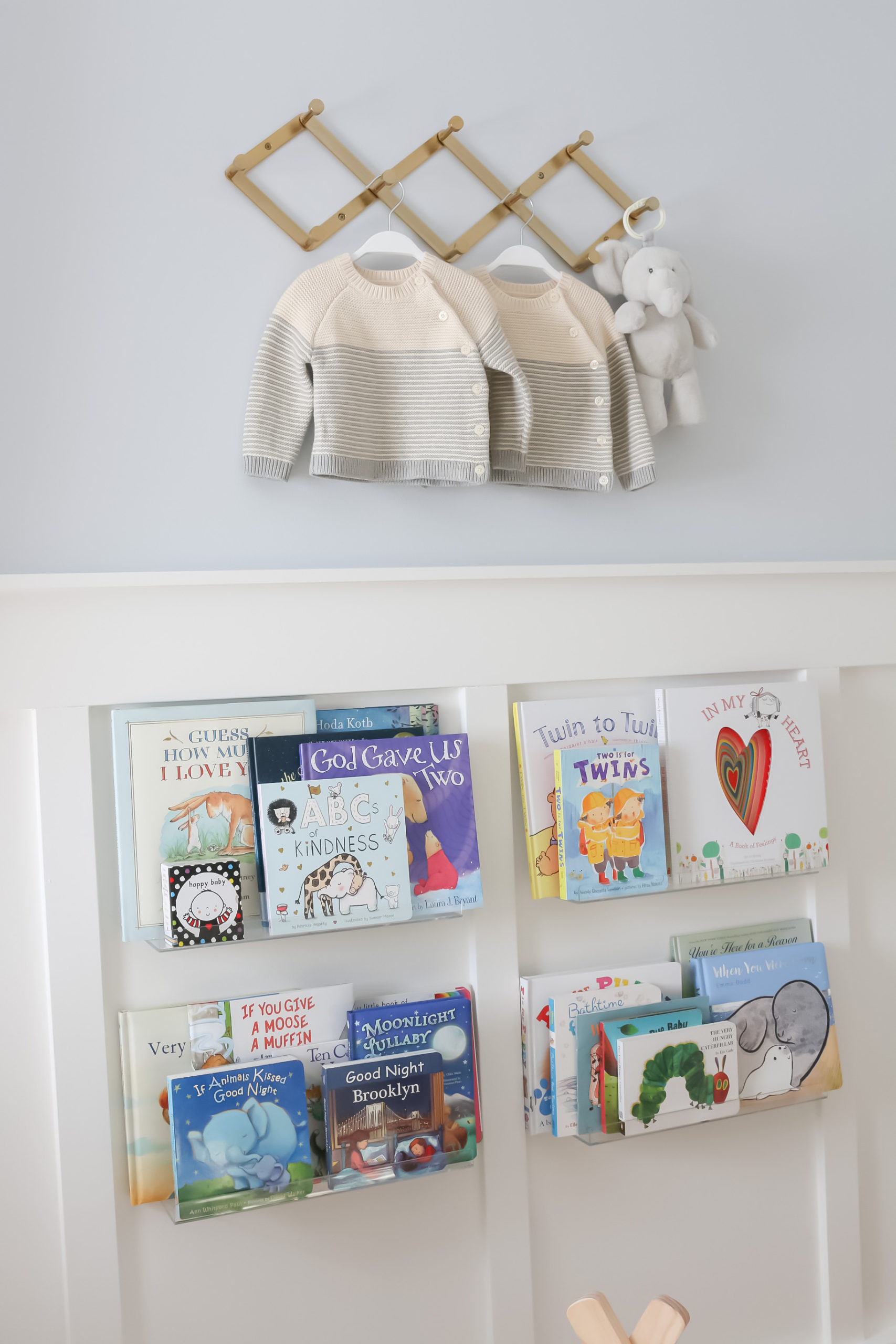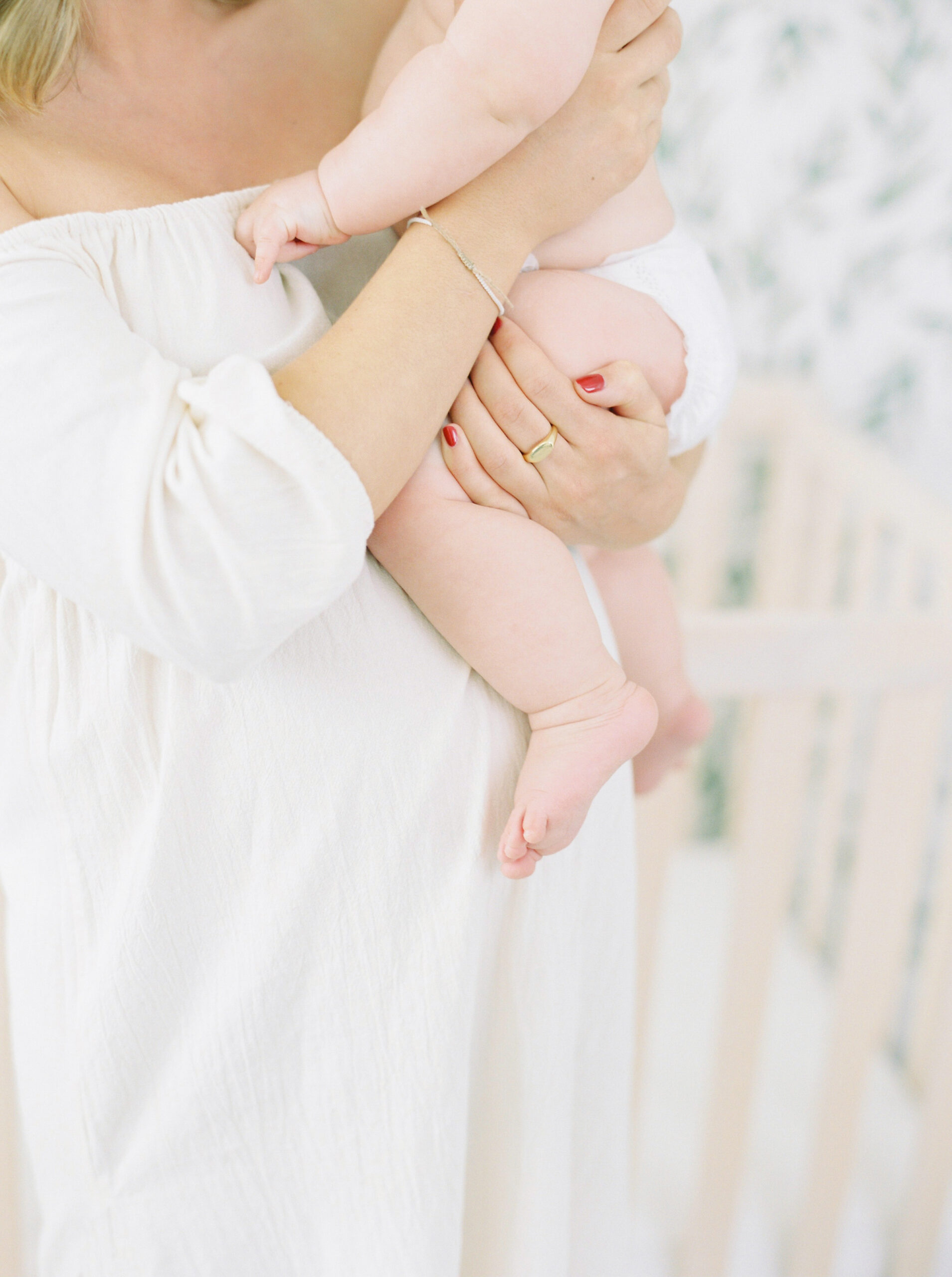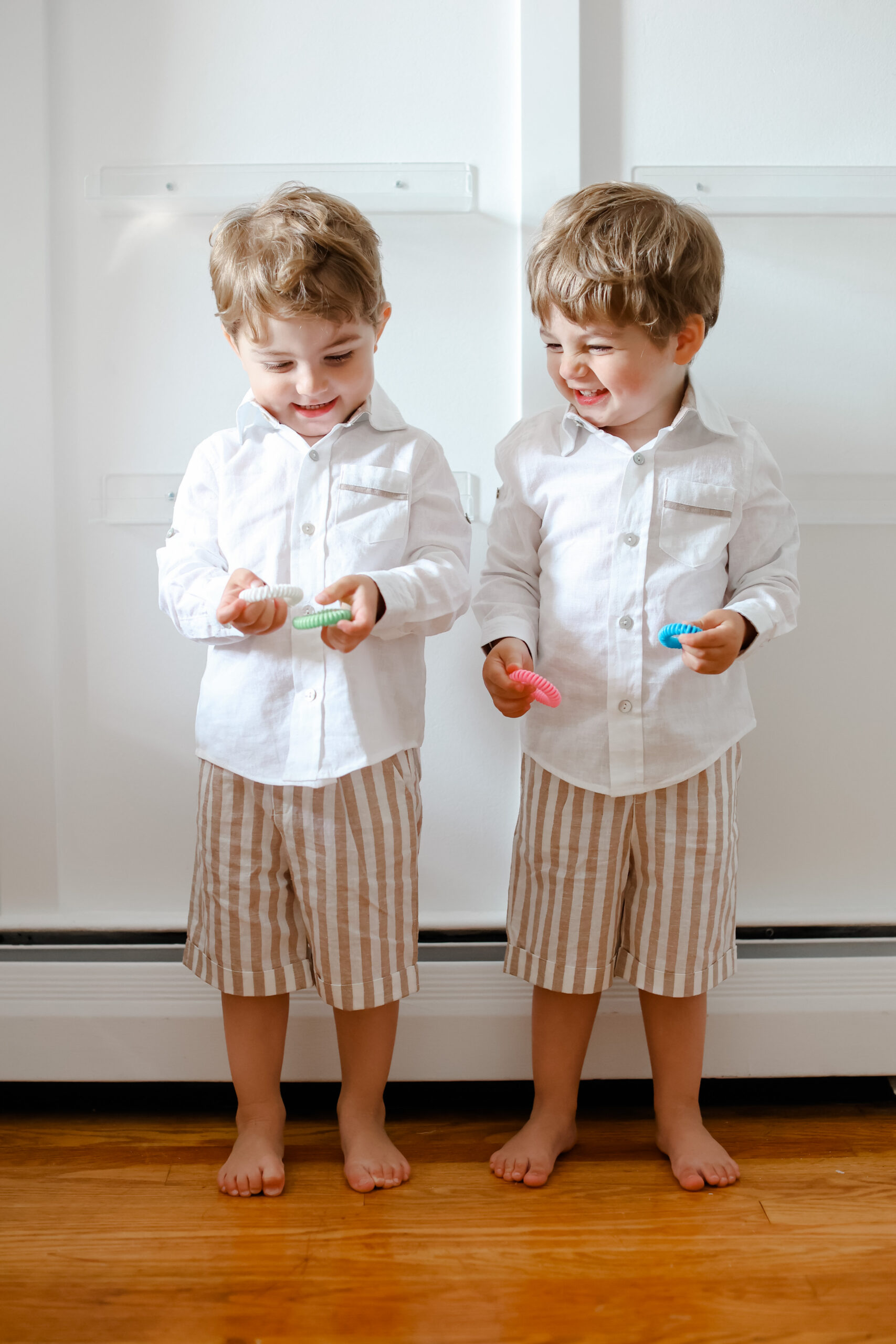Are you tired of starting your day with the piercing cries of your little one? You’re not alone. Baby early morning wake ups are extremely common and many parents go through this believe it or not. But there are a few thing you can do about early morning waking to help your entire family get a little more rest.
Today, we will delve into the unexpected factor that could be causing your baby’s early morning wakings, and more importantly. I will leave you with effective strategies to solve this common sleep issue.
From understanding the intricate workings of your baby’s circadian rhythm to uncovering:
- The impact of natural light
- Sleep associations
- How creating a sleep-friendly environment
- Ensuring your little one isn’t going to bed overtired or under-tired
So, let’s dive in!
What is considered Early Morning Wakings?
Before we dive into any issues that could be causing your baby’s early morning waking, lets first understand what is considered an early morning waking. If your baby wakes up anytime before 6AM that is considered an early morning waking. Most babies are typically up between 6am and 7 am. It is also important to note that early morning wakings are expected with infants. Babies 4 months and older can be put on schedule as well as the below tips to help improve early morning wakings.
Understanding the Circadian Rhythm
To truly comprehend why your baby is waking up early each morning, it’s essential to grasp the concept of the circadian rhythm. This internal biological clock regulates our sleep-wake cycle and influences various bodily functions, including hormone secretion and body temperature. Babies, like adults, have a circadian rhythm that guides their sleep patterns.
Circadian Rhythm in Babies
The circadian rhythm is governed by external cues. Primarily light and darkness, which help synchronize the internal clock with the natural world. When your baby wakes up early, it could be due to their circadian rhythm being disrupted or not fully established yet. Understanding and working with this rhythm can be the key to solving the early morning waking issue.
Just like adults, babies produce melatonin, a hormone that promotes sleepiness, in response to darkness. As daylight fades and the evening approaches, the rise in melatonin levels helps signal to your baby’s body that it’s time for sleep. Exposure to excessive light during the evening can hinder the production of melatonin, making it difficult for your little one to settle down for the night.
Furthermore, newborns have an immature circadian rhythm, which explains their erratic sleep patterns in the early months. Over time, as your baby’s internal clock develops, they gradually begin to differentiate between day and night and establish a more consistent sleep schedule. However, during this developmental phase, it’s crucial to help your baby establish healthy sleep habits and create an environment that supports their circadian rhythm. Which we will cover this later in the post.
The Impact of Natural Light
One important factor that plays a significant role in the sleep-wake process is natural light. The impact of natural light on your baby’s sleep patterns cannot be overstated, as it triggers the production of hormones that help regulate their internal clock.
Research suggests that exposure to natural light during the day can support the development of a healthy circadian rhythm in infants. When your baby is exposed to bright light, such as sunlight, their brain receives signals to produce cortisol, a hormone that promotes wakefulness and alertness. This influx of cortisol helps your baby differentiate between daytime and nighttime. Reinforcing their internal clock’s understanding of when it’s time to be awake and active.
When natural light diminishes in the evening, your baby’s body starts producing melatonin. It’s hormone that promotes relaxation and sleepiness. The decrease in melatonin during the day helps your baby stay awake and energized. While its increase during the evening signals the body that it’s time to wind down and prepare for sleep. This delicate balance of hormones is crucial for establishing a consistent sleep schedule for your baby.
To optimize the impact of natural light on your baby’s sleep, it’s beneficial to expose them to bright light during the day. Aim to incorporate outdoor activities or open curtains to let sunlight into your home. Creating a light-filled environment during waking hours can help set the stage for better sleep at night.
Uncovering the Role of Sleep Associations
When your baby forms sleep associations, they create a connection between specific actions, objects, or conditions and the act of falling asleep. For example, if your baby is accustomed to being rocked to sleep or having a pacifier, they may develop a reliance on these sleep aids. While sleep associations can initially be helpful in soothing your baby to sleep, they can become problematic if your baby is unable to fall back asleep without them.
The role of sleep associations becomes particularly relevant when considering why your baby wakes up early every morning. If your baby associates certain conditions with falling asleep, such as being held or rocked, they may find it difficult to self-soothe and go back to sleep when they naturally wake up during the night. As a result, they may wake up earlier than desired, as their sleep association has not been satisfied.
To ensure your baby can achieve quality sleep and avoid early morning wake-ups, it’s important to establish healthy sleep associations. This means gradually reducing or eliminating external sleep aids like rocking, pacifiers, or specific conditions that your baby relies on to fall asleep. By helping your baby learn how to self-soothe and fall back asleep independently, you can empower them to sleep through the night and wake up at more desirable times.
Personally I have always laid my twins awake, now that doesn’t mean I NEVER rocked them. In fact it was part of our routine. I would do our nap / bedtime routine and right before putting them down in their cribs, I would rock them and always place them in the crib awake.
Creating a Sleep-Friendly Environment
It is crucial to establish a setting that promotes restful and undisturbed sleep. By creating an ideal sleep environment, you can set the stage for your baby to develop healthy sleep habits and wake up at more desirable times.
Room Temperature
One important aspect of creating a sleep-friendly environment is to make sure that your baby’s sleep space is comfortable and conducive to rest. Start by ensuring that the room temperature is appropriate – not too hot or too cold, aim between 68 and 72 degrees. A comfortable temperature can help your baby relax and settle into sleep more easily.
Complete Darkness
Consider using blackout curtains or blinds to create a dark environment that signals to your baby’s body that it’s time to sleep. This can help regulate your baby’s internal clock and prevent them from waking up too early. You want the room to be completely dark. A good way to test this is by doing a hand test. Shut the light, let your eyes adjust and put your hand out in front of you, if you can see it, it’s not dark enough.
Sound Machine
Another key aspect of a sleep-friendly environment is reducing external distractions and noises that may disrupt your baby’s sleep. Consider using a white noise machine or a fan to create a soothing background noise that can drown out any sudden sounds. This can help your baby feel more secure and settled, allowing them to sleep more peacefully throughout the night.
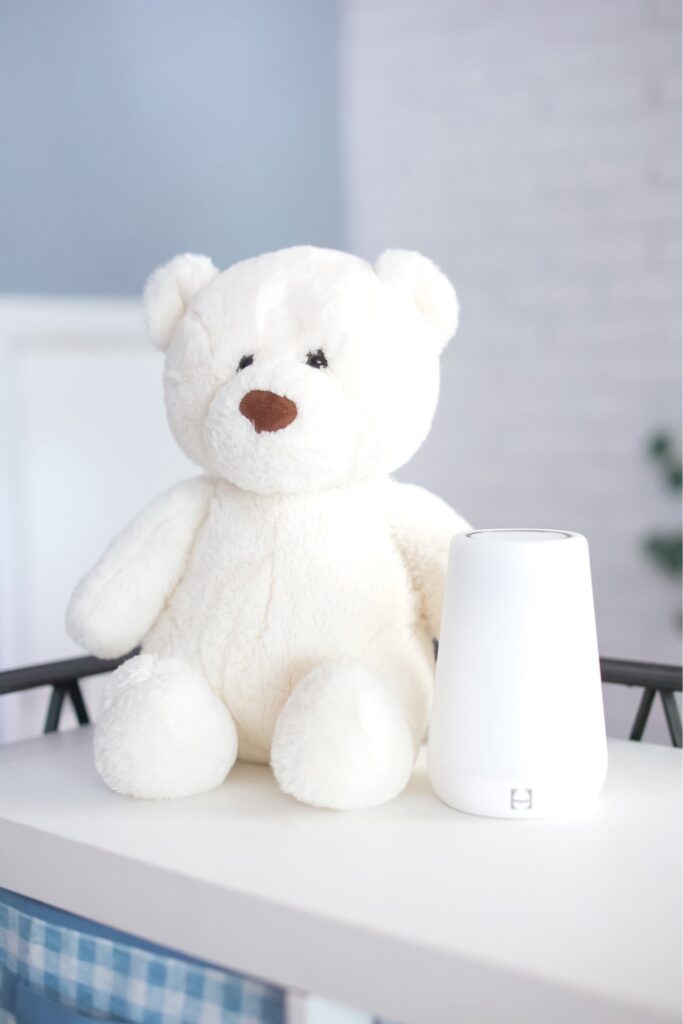
Bedtime / Nap Time Routine
In addition to the physical aspects of the sleep environment, it’s also important to establish a consistent bedtime routine. A predictable routine can help signal to your baby that it’s time to unwind and prepare for sleep. By following a consistent routine, you can help your baby relax and transition into sleep more smoothly.
Sleep Sack
I love incorporating a sleep sack into my routine because it signals to the baby that sleep is coming. We have used sleep sacks with the twins ever since we transitioned out of swaddles. They still sleep in one and they are almost 3 years old!
My Sleep Must Haves:
Here’s a list of my sleep must haves and things I have used with the boys as a certified pediatric sleep consultant.
Going to Bed Overtired or Not Tired Enough
Another important factor to consider is their level of tiredness before bed. Just as adults we can struggle to fall asleep if we are not tired enough or are overtired, babies can experience the same difficulties.
Overtired
An overtired baby will have a very difficult time falling asleep. There may be a common misconception that if I keep the baby up longer, they will sleep longer in the morning. In fact the opposite is true. They will actually wake up more at night and I can guarantee you, they will have an early morning waking.
The best way to solve this issue is by following age appropriate wake windows and sleep schedules. You want your baby to fall asleep within 5-20 minutes of going in their crib. This is how you know you have your wake windows nailed down.
If you don’t know where to start with wake windows, here’s a complete guide from 0 to 5 years old that includes wake windows, sleep schedules and nap transitions. This is the schedule I go by.
Under-Tired
If your baby isn’t tired enough they will also have a hard time going down and getting the must needed rest. Following age appropriate wake windows and sleep schedules will fix this issue!
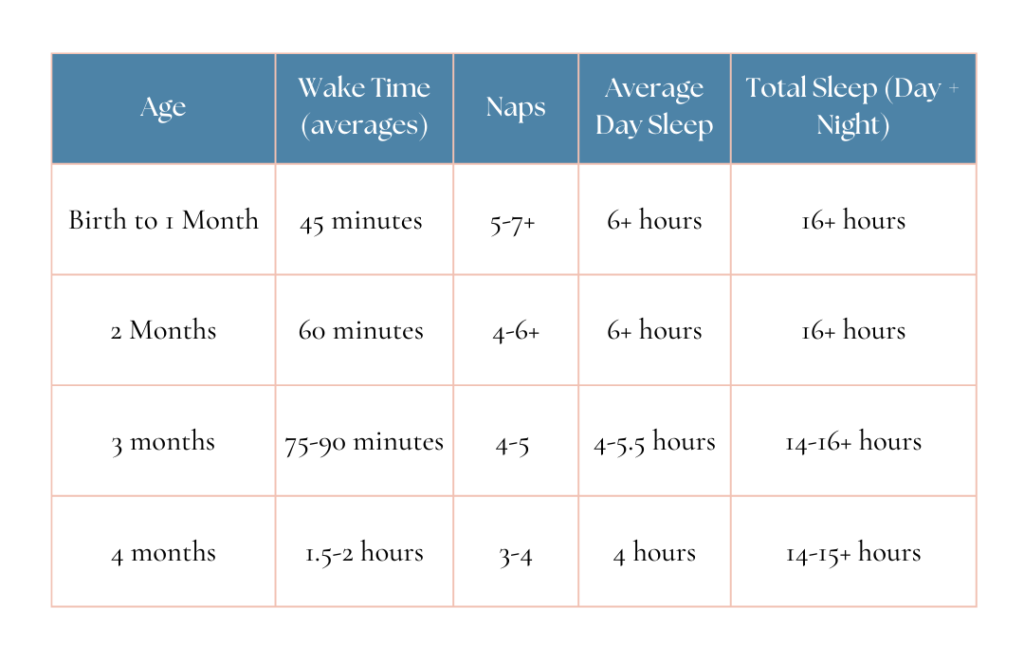
Final Thoughts
Implementing these strategies can bring an end to those sleepless nights. With the incorporation of these tips, you will be on the way to a happy sleeper. Remember, any sleep regressions may also cause early morning wakings which is totally normal.
Shop This Post
Other posts you may like
6 Newborn Sleep Tips That Actually Work
